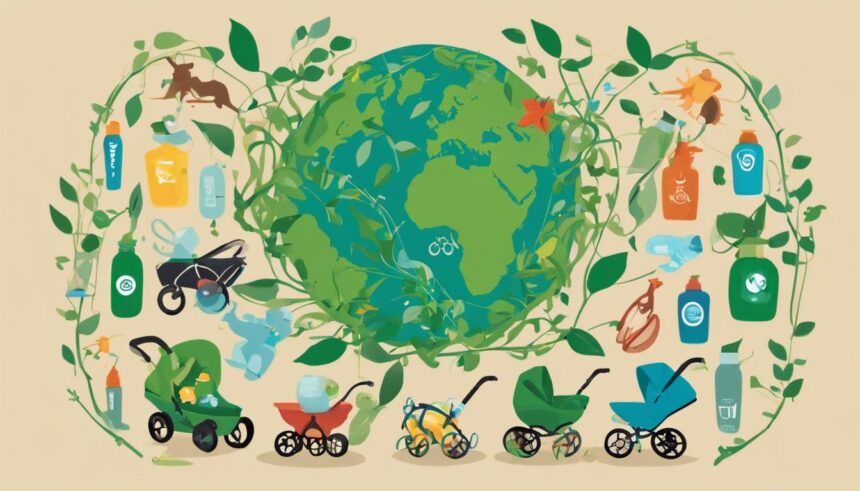The newly formed GreenGear Coalition, unveiled on Earth Day, brings together nearly 50 major brands to promote sustainability by recirculating unused baby and kid gear, aiming to set new industry standards and significantly reduce landfill waste.
In an influential move set to reshape the landscape of consumer habits in the baby and kid gear industry, GoodBuy Gear has introduced the GreenGear Coalition. This initiative, announced on Earth Day 2024, draws together nearly 50 leading brands, retailers, and manufacturers to address the persistent issue of waste within the sector. The coalition’s primary aim is to recirculate open box and returned goods that are often destined for landfills, thereby promoting a more sustainable approach.
Historically, a considerable portion of baby and kid gear ends up unused due to varied reasons like gifting or sizing issues, with over 80% of these items being brand new. Traditional practices then send these practically untouched goods straight to waste disposal, a method that’s not only environmentally unsustainable but also economically wasteful. The GreenGear Coalition, however, proposes a revolutionary shift by ensuring these items are rerouted back into use.
Participating companies in the coalition include renowned names such as Bugaboo, Thule, and Stokke, each pledging to collectively tackle the waste problem afflicting the baby products industry. By harnessing the power of their collective influence, these brands aim to redefine industry norms and encourage more responsible consumption and production patterns. Notable achievements so far include saving 1.7 million pounds of gear—equivalent to filling 82 school buses—from landfill disposal, with an ambitious goal to double this figure by the end of 2024.
Kristin Langenfeld, CEO of GoodBuy Gear, emphasized the ethical and environmental imperatives driving the initiative. She explained that the coalition serves as a clear signal to the market about the increasing priority consumers and businesses place on sustainability. Furthermore, Melody Rodriguez Levine from Joolz voiced a complementary perspective, indicating that participation in the GreenGear Coalition is in line with their company’s dedication to fostering environmental stewardship within the industry.
The initiative also extends significant benefits to consumers, essentially enabling parents to make eco-friendlier purchasing choices without compromising on the quality or affordability of baby essentials. This approach not only alleviates the burden on the planet but also on family budgets, potentially transforming consumer culture in this market segment.
Moreover, the GreenGear Coalition aligns closely with global sustainability goals which emphasize reduced waste and enhanced recycling and reuse. By addressing the lifecycle of baby and kid gear, the coalition sets a precedent that could inspire similar actions in other sectors.
Launching on Earth Day is symbolic, underscoring the initiative’s commitment to the planet. As GoodBuy Gear solicits more partners to join this green revolution, the impact of the GreenGear Coalition might just signify a pivotal shift towards sustainable consumerism within and potentially beyond, the realm of baby and kid gear.
As we move forward, GoodBuy Gear’s initiative is not only a reflection of changing market dynamics but also a proactive response to the increasing consumer demand for sustainable products. The next steps for the GreenGear Coalition will likely focus on expanding its reach and efficacy, proving that industry-wide collaboration can be a powerful tool in the fight against environmental degradation.





